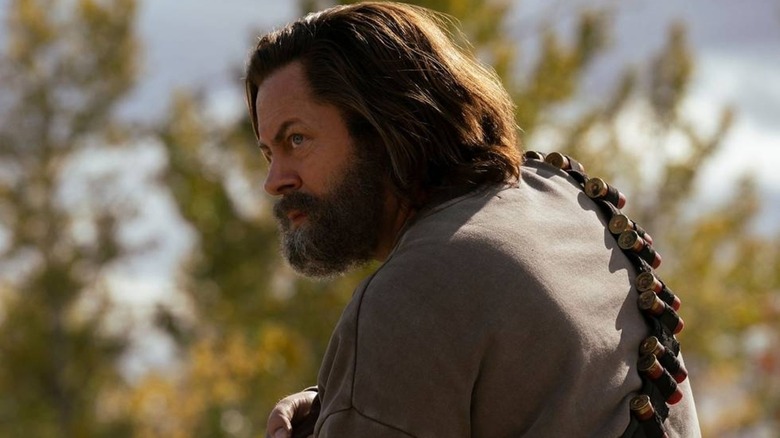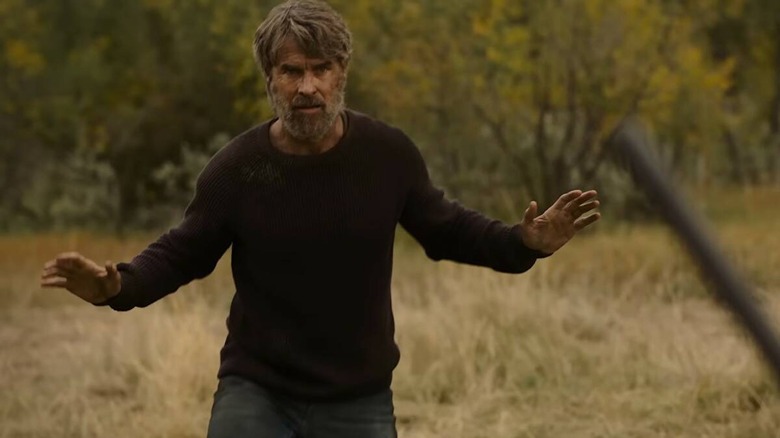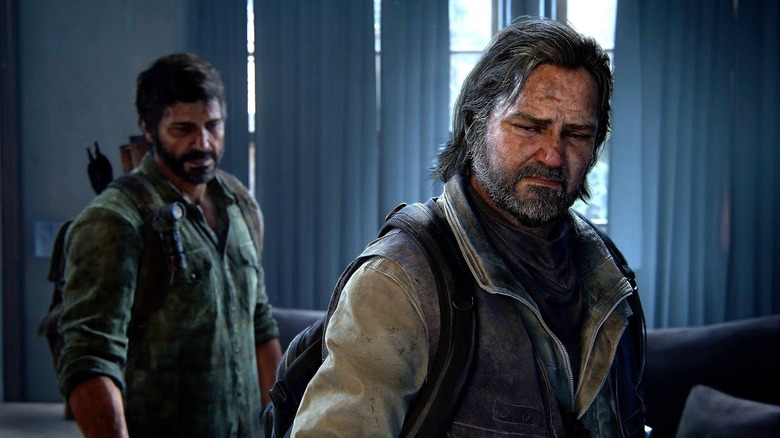The Last Of Us Cinematographer Felt Pressure To Do The Show's 'Golden Script' Justice [Exclusive]
This article contains spoilers for "The Last of Us" episode 3.
It's no secret that HBO's "The Last of Us" has been a faithful adaptation up until this point. Created by Craig Mazin and Neil Druckmann, the series has honored the source material by sticking close to it, only diverging when necessary. "The Last of Us" gets all the details of the post-apocalyptic world just right, from the infected population to the withered state of the environment. However, the characters and their shared journey remain the focus, and added story beats adhere to that principle. This is especially true for the third episode, which featured the never-before-seen love story between Bill (Nick Offerman) and Frank (Murray Bartlett).
Although the adaptation has been a gratifying experience for fans of the video game, the best parts of HBO's "The Last of Us" are completely new. And, against all odds, the show has successfully elevated the source material to new heights in episode 3.
Straying from the set path usually means disaster for video game adaptations, but not for "The Last of Us." The series confidently moved away from the familiar to break our hearts just as easily as it captured them. However, the high-stakes nature of delivering a totally different experience was not lost on the crew. The cinematographer behind the Bill and Frank-focused episode discussed how daunting it was to have to bring the brand-new script to life.
'An instruction manual for greatness'
/Film's Valerie Ettenhofer talked to "The Last of Us" cinematographer Eben Bolter about shooting the third episode, revealing that the pressure to deliver was on after reading the script, and not just because it was written by showrunner Craig Mazin, either:
"We all knew it was special, I'd say. And the only real nerves were to do with making sure we did it justice. It would have been such a missed opportunity for a script that good, with that great production design, that great cast, if somehow we'd messed it up. Really, that was the angle of anxiety. It was just, 'We mustn't mess this up. We've got this golden script, we've just got to ... ' It was an instruction manual for greatness, it really was. It was like, 'If we can do what this says, this is going to be a really special episode of television.'"
Bolter, who did a phenomenal job capturing Bill and Frank's emotional journey, had plenty of reason to get it right. The Mazin-written script focuses on an isolated story that is exclusively dependent on human interaction. The emotional weight of Bill and Frank's relationship had to top any bit of tension a clicker could provide. It's safe to say Bolter had a tall task on his hands, especially since he had nothing to reference from the original video game.
A new experience for everyone
"The Last of Us" made fans fall in love with Bill, but it did not necessarily do him the most justice. Although Bill is a prominent supporting character in the game, his relationship with Frank is only subtly teased through his interaction with Joel and Ellie. Moreover, Frank is never actually shown to the gaming audience (at least not the upper half of his body). HBO's "The Last of Us" rectifies this by introducing the origins of their relationship as the centerpiece of episode 3. What Eben Bolter captured through his hand-held camera work is an intimate reimagining of Bill's life with Frank, which is given time to breathe in the 80-minute runtime.
As avid fans of the video game franchise, we're used to getting up close and personal with the more violent aspects of the post-apocalyptic universe. HBO's "The Last of Us" recreates the immersive experience by re-positioning the lenses on the emotional connections the characters have with each other. Instead of following his strictly-tragic story from the game, Bill and Frank are far more layered the second time around. "The Last of Us" took a big swing in diverting from expectations with the third episode, but Bolter and co. could not have hit it further out of the park.
New episodes of "The Last of Us" air on Sundays on HBO and HBO Max.


